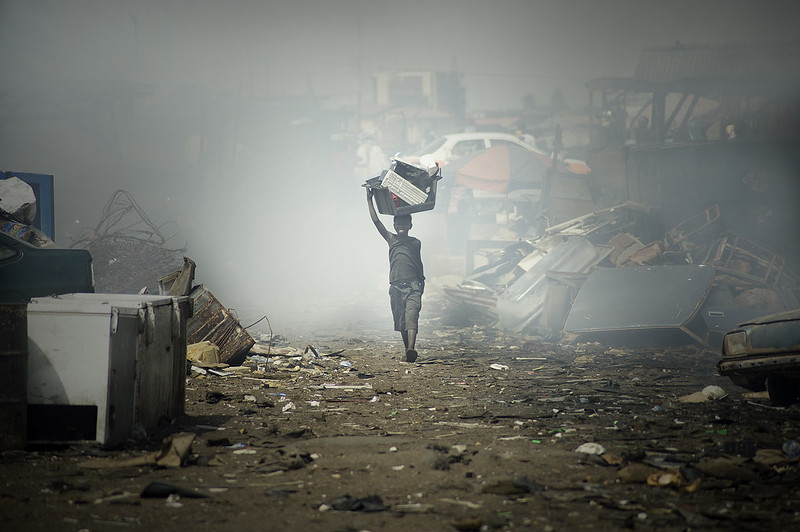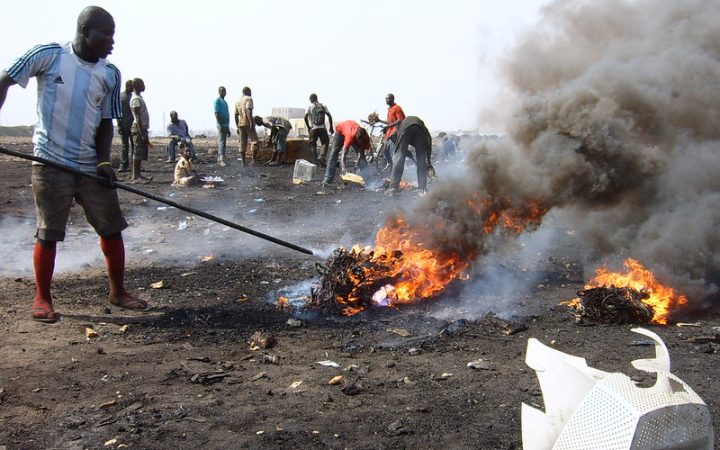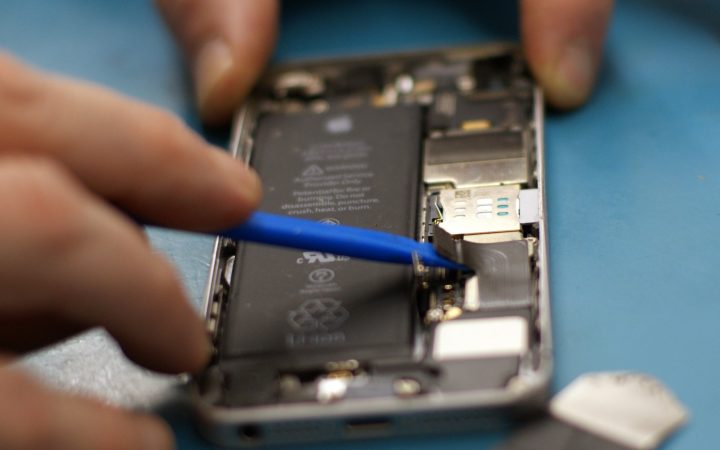
This summer the World Health Organisation (WHO) published a report named ‘Children and Digital Dumpsites’ which explains how the millions of tonnes of toxic electronic waste dumped every year is putting children’s health at risk. In mid to low-income countries, where over 80% of e-waste is illegally dumped, children often work in informal e-waste recycling centres, or live and play close to them, and are exposed to dangerous levels of lead and mercury. With more than 50 million tons of e-waste produced across the globe every year – that’s more than the weight of 350 cruise ships – we all have to take action now.
According to a separate report produced by the United Nations University (UNU), the ‘Global E-Waste Monitor 2020’, 53.6 million metric tonnes (Mt) of electronic waste was generated globally in 2019, up 21% in five years. More than 20% of this is made of screens and small IT equipment.
The UNU predicts that global e-waste – defined as discarded products with a battery or plug – will reach 74 Mt by 2030.
Higher consumption rates, short life cycles and few options for repair has caused e-waste to become the world’s fastest-growing domestic waste stream. This is dangerous to humans and the planet at many levels.
Approximately 18 million children and adolescents, some as young as five, are engaged in child labour in the industrial sector, which includes informal e-waste processing.
They will use crude processes to extract valuable metals from e-waste, including open burning, heating or acid leaching (using cyanide salt, nitric acid or mercury). This exposes children and workers to mercury, lead, cadmium and other by-products. Particles also become airborne and can leak into soil and water sources, increasing the risk to local communities and the environment.
In addition, mining processes used to extract rare earth elements used in high-tech electronics also release hazardous toxins, as do some manufacturing processes. This all contributes to the growing e-waste problem.

So, what can you do?
Lots of large corporations are doing their bit to address the e-waste crisis, including tech ‘take-back’ schemes like this one from Dell, whereby a company takes your unused equipment to retrieve and reuse precious materials to make new products.
Locally, we have fantastic initiatives like Laptops for Kids, which helps to close the digital divide as well as finding good homes for your unwanted tech, and Sheffield’s waste collection provider Veolia accepts electrical goods at its recycling centres. You can find out how electrical items are recycled according to the Waste Electrical and Electronic Equipment (WEEE) Regulations here.
However, we can all reduce the amount of e-waste we produce by simply keeping hold of our tech equipment for as long as possible.
In 2019 the EU introduced a ‘right to repair’ policy, which means that from this year manufacturers have to build new tech with repair in mind. After leaving the EU, the UK government pledged to “match and even exceed EU eco product regulations”.

However, perceptions of repaired and refurbished tech seem to be holding some businesses back from these more sustainable methods. We spoke to iRepair Stop founder, Dave Walker, who has been fixing, selling and leasing refurbished Apple equipment to people and businesses in Sheffield since 2018.
He explains,
“People worry about the performance of refurbished tech, but we upgrade all our Macs to solid state drives; they run extremely well and are comparable to new tech. There’s also a misconception about older tech looking less modern, but Apple design is timeless – the iMac 2012 up to 2021 is identical externally.”
Some businesses worry that recycled kits may be more prone to failure. This, Dave says, isn’t true, but even so iRepair Stop wants customers to be assured in their purchases and leased equipment He explains:
“We offer a year’s warranty with all refurbished Macs to give confidence to the buyer, and our leasing option gives warranty for the duration of the lease. Plus, if a business or individual prefers to use Windows, and/or Microsoft Office, both of those applications can run on Macs.”
Buying second hand tech means that, as well as knowing you are saving something from going to landfill, you’re also saving money.
“Refurbished hardware is typically around 50% cheaper than buying new. There are more extreme examples; we are selling 2013/14 Mac Pros starting at £1100. Brand new they start at around £5.5k!”
And if you have short term needs, you don’t necessarily have to buy anything. Dave explains,
“For start-ups or project-led businesses subject to demand fluctuations, our leasing option may be suitable. There are no up front costs and no contract commitments. Our deal comes with lifetime warranty and support options.”
Find out more
To understand the e-waste crisis better, we’d recommend taking a look at the latest E-Waste Monitor report, which you can access here. You can find out more about the Right to Repair policy by reading this article from the BBC, and you can see how volunteers in London are helping people to learn how to repair their own electrical goods, in this story.
Finally, to better understand the impact that e-waste is really having on the planet and on children as young as five, read this useful summary of the WHO’s ‘Children and Digital Dumpsites’ report.
10% off all iRepair Stop services for Sheffield Digital members
If you are an Individual Member of Sheffield Digital you will receive a 10% discount on all repairs and Company Members will receive the same, up to the value of £1000. On managed services and support contracts, a 10% discount will be applied to the first month. Contact the team now to arrange your repair or visit the website to find out more, and to see what refurbished Apple products the store has for sale.